What are the best substitutes for Lillet Blanc?
Are you tired of sipping the same old Lillet Blanc wine and craving a change? Look no further! In this ultimate guide, we have curated the top 10 delicious alternatives to Lillet Blanc that will tantalize your taste buds and take your wine game to a whole new level. Whether you’re a wine connoisseur or simply enjoy a glass to unwind after a long day, these alternatives are guaranteed to spark joy in every sip. We have carefully selected a range of options that will suit any palate, and we have also got some non-alcohol versions for you to try too! So say goodbye to monotony and hello to a world of flavors waiting to be explored.
Try using: White Vermouth, Cocchi Americano, St Germain, Salers Aperitif, Angostura Orange Bitters, Amaro Averna, White Grape Juice, Herbal Infusions, Non-Alcoholic Aperitif Alternatives, or Soda Water or Tonic Water.
What is Lillet Blanc?
Lillet Blanc is a delightful French aperitif wine that has a rich history. It’s actually a blend of wine and citrus liqueurs, with a distinct sweet and fruity flavor. And remember to be careful when pouring as it contains 17% alcohol by volume – which is higher than regular wine!
It was was first created in 1872 in the town of Podensac in the Bordeaux region of France and was the brainchild of the Lillet brothers, Paul and Raymond. They were inspired by the growing trend of aperitif wines and thought they would try to create something of their own. The Lillet Blanc recipe combines local Bordeaux wines, which provide the base, with macerated citrus peels, particularly sweet and bitter oranges from Spain and Morocco.
This blend is then aged in oak barrels to marry the flavors, creating the beloved Lillet Blanc we know today. Over the years, the recipe has remained a well-guarded secret, with only a few individuals in the world knowing the exact ingredients and proportions.
Lillet Blanc gained popularity as a refreshing aperitif, often served over ice with a slice of citrus fruit, such as orange or lime. It’s also a key ingredient in classic cocktails like the Vesper Martini, famously featured in James Bond’s “Casino Royale.”
Lillet Blanc has a timeless appeal and remains a beloved aperitif choice for those seeking a taste of French elegance. It’s a wonderful addition to your culinary repertoire, whether for sipping or incorporating into cocktails and recipes for that touch of sophistication.
Okay, before we look at your Lillet Blanc substitute options, let’s deal with that empty cupboard situation!
Where can I buy Lillet Blanc?
If you want to be more prepared and ensure you don’t run out of Lillet Blanc, then you should stock up now.
Nowadays, most liquor stores stock Lillet Blanc. Or we thought, let’s make life simple, so why not buy some quick and easy to use Old Fashioned Cocktail Syrup.
So why not jump on and place your order today.
STOCK UP NOW!
Taste the delightful flavor notes of cherry, cinnamon, orange, clove and cardamom. Just add to bourbon to make a perfect Old Fashioned cocktail.
Store in the refrigerator once opened, and use within 3 – 4 months.
What can I substitute for Lillet Blanc?
Here are some of the best ingredients to substitute the flavor and role that Lillet Blanc provides.
- White Vermouth
- Cocchi Americano
- St Germain
- Salers Aperitif
- Angostura Orange Bitters
- Amaro Averna
- White Grape Juice
- Herbal Infusions
- Non-Alcoholic Aperitif Alternatives
- Soda Water or Tonic Water
Lillet Blanc substitutes
White Vermouth
White vermouth is a great substitute for Lillet Blanc in many cocktails and recipes. They actually both share similar flavor profiles, so making the transition is fairly seamless. Did you know that White Vermouth has an ABV of between 15% to 18%?
White vermouth, such as Noilly Prat or Dolin Blanc, is dry and fortified, just like Lillet Blanc. It has herbal and slightly sweet notes that will complement a wide range of drinks. You can use it in classic cocktails like the Corpse Reviver #2 or also the Vesper Martini. It will provide that herbal complexity and also add a touch of sweetness, similar to Lillet Blanc.
When using white vermouth as a substitute, keep in mind that it may be slightly drier, so you might want to adjust the sweetness level in your recipe if needed. Feel free to experiment to find the perfect balance for your taste.
White vermouth is a versatile ingredient that can step in admirably for Lillet Blanc, so go on, give it a go.
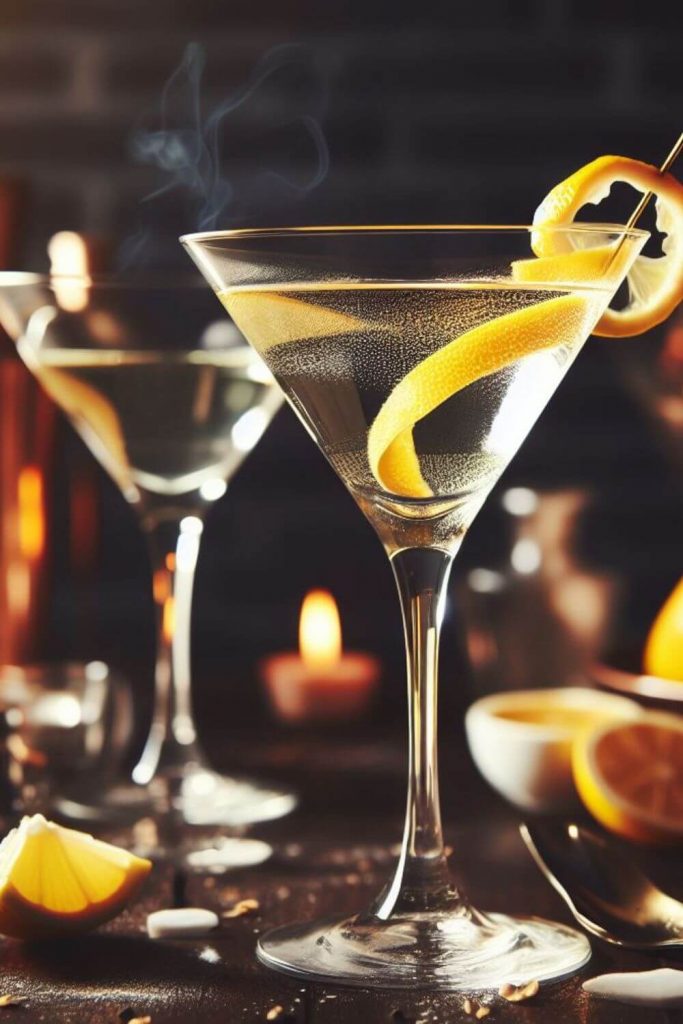
St Germain (non-alcoholic)
St-Germain is a delicious elderflower liqueur that can add a unique twist when used as a substitute for Lillet Blanc in some cocktails and recipes. While it’s not an exact match in terms of flavor, it can offer a lovely floral and sweet complexity.
Try using St-Germain in cocktails that call for Lillet Blanc, especially those with floral or fruity elements. For instance, in a Corpse Reviver #2, it can add a fragrant and sweet dimension. Just be aware that St-Germain is sweeter than Lillet Blanc, so you may need to adjust the sweetness in your recipe to taste.
It works really well in sangrias or spritz-style drinks, as it can bring a lovely floral note to the mix. Combine it with white wine, sparkling water, and fresh fruit for a refreshing alternative.
If you’re looking for a non-alcoholic option, you can create a delightful mocktail by mixing St-Germain with sparkling water and a touch of citrus. It can mimic the aromatic qualities of Lillet Blanc without the alcohol content.
While St-Germain may not perfectly replicate the Lillet Blanc taste, it adds its own unique character to drinks and can be an exciting substitution.
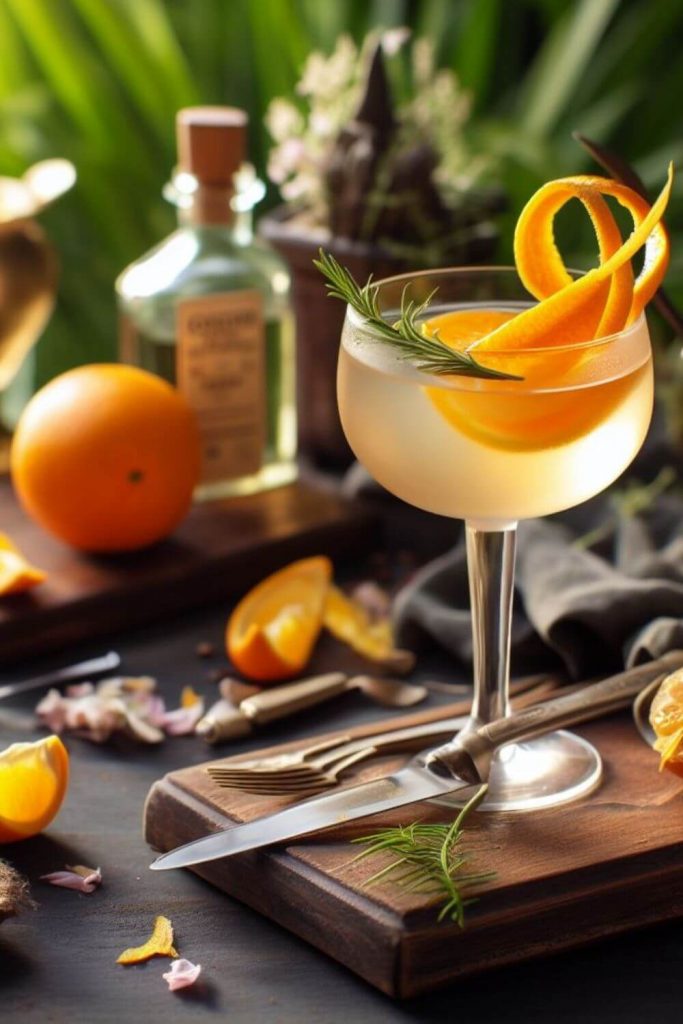
Salers Aperitif
Salers Aperitif can be an intriguing substitute for Lillet Blanc, especially if you’re looking to add a unique twist to your cocktails and recipes. It is a gentian-based aperitif with an ABV of around 16%. It is known for its bitter taste and also its herbal profile, so it will bring a different dimension to your creations.
In cocktails that traditionally call for Lillet Blanc, such as the Corpse Reviver #2 or the Vesper Martini, using Salers Aperitif can introduce a pleasant bitterness and herbal complexity. It’s a great choice if you enjoy more bitter flavors. You can serve Salers Aperitif neat or over ice as an aperitif on its own.
Experiment with using Salers Aperitif in recipes that specifically benefit from its herbal and bitter notes. For instance, it can add depth to herbaceous and savory dishes.
Remember that Salers Aperitif has a different flavor profile than Lillet Blanc, so the result will be a departure from the original, but that’s where the creativity comes in.
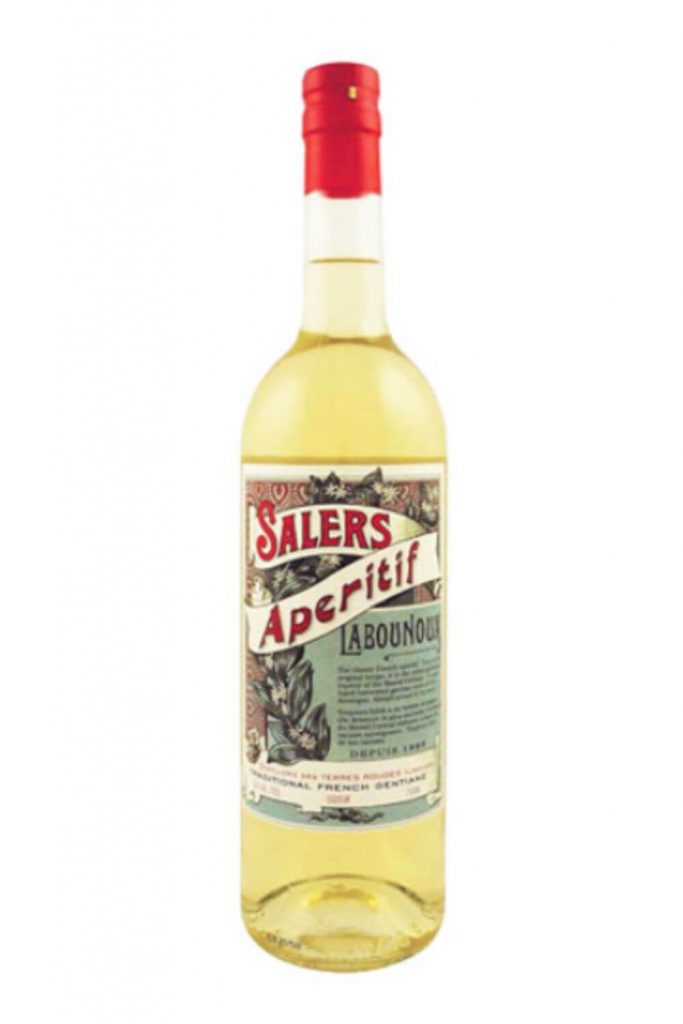
Angostura Orange Bitters
Angostura Orange Bitters can add a unique twist to cocktails and recipes as a substitute for Lillet Blanc. Most bitters have a high alcohol by volume and Angostura Orang Bitters usually ranges from 45% to 50% ABV, which is equivalent to 90 to 100 proof. These bitters are used in cocktails to add a burst of citrusy and aromatic flavor and aroma, but it’s important to note that because they have a high alcohol content, they are used in very small quantities in cocktails to provide their unique flavor without significantly increasing the alcoholic strength of the drink.
Angostura Orange Bitters can be a delightful addition to cocktails that typically feature Lillet Blanc. It can provide a burst of orange flavor and aromatic complexity. Consider using it in drinks like a Negroni or a Martinez cocktail.
You can also experiment with creating a modified aperitif by combining white wine or dry vermouth with a few dashes of Angostura Orange Bitters. This will give your drinks a citrusy and aromatic quality similar to Lillet Blanc.
Or try using Angostura Orange Bitters to enhance the flavor profile of recipes. It can be a subtle yet distinctive way to introduce orange and aromatic notes into various dishes and desserts.
While Angostura Orange Bitters won’t replicate Lillet Blanc’s sweetness and wine base, it can be a versatile and creative substitute that adds a unique flair to your culinary creations.
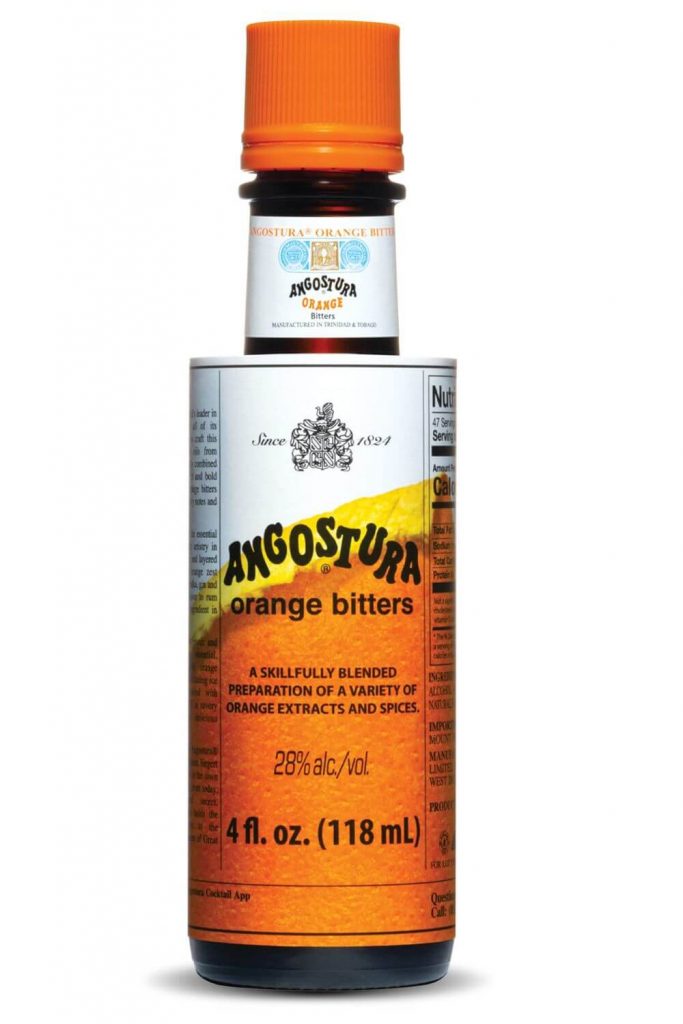
Amaro Averna
Amaro Averna is a complex and bittersweet herbal liqueur, and while it’s quite different from Lillet Blanc, it can still be used as a creative substitute in certain cocktails and recipes.
It typically has an alcohol by volume (ABV) of around 29% to 32%, which is equivalent to approximately 58 to 64 proof. This amaro is known for its bittersweet and herbal flavor profile, and it’s often enjoyed as a digestif on its own or used as an ingredient in cocktails. The moderate alcohol content in Amaro Averna allows it to be sipped neat or used in various mixed drinks to add depth and complexity to the flavor.
In cocktails that usually feature Lillet Blanc, consider incorporating Amaro Averna for a unique and complex flavor. It can bring a delightful bittersweet and herbal quality to your drinks. Try it in a variation of a Negroni or a Manhattan for a twist.
If you’re making sangria or punch, Amaro Averna can be a bold addition. Its rich and herbal notes can complement the fruit and other ingredients, offering a distinct character to your beverage.
Or why not get creative in the kitchen by using Amaro Averna in dessert recipes. It can be a unique flavor enhancer for dishes like chocolate-based desserts, ice creams, or even fruit salads.
It’s important to note that Amaro Averna is notably different from Lillet Blanc in taste, so the results will be quite distinct. However, this can be an opportunity for you to explore new and exciting flavor combinations.
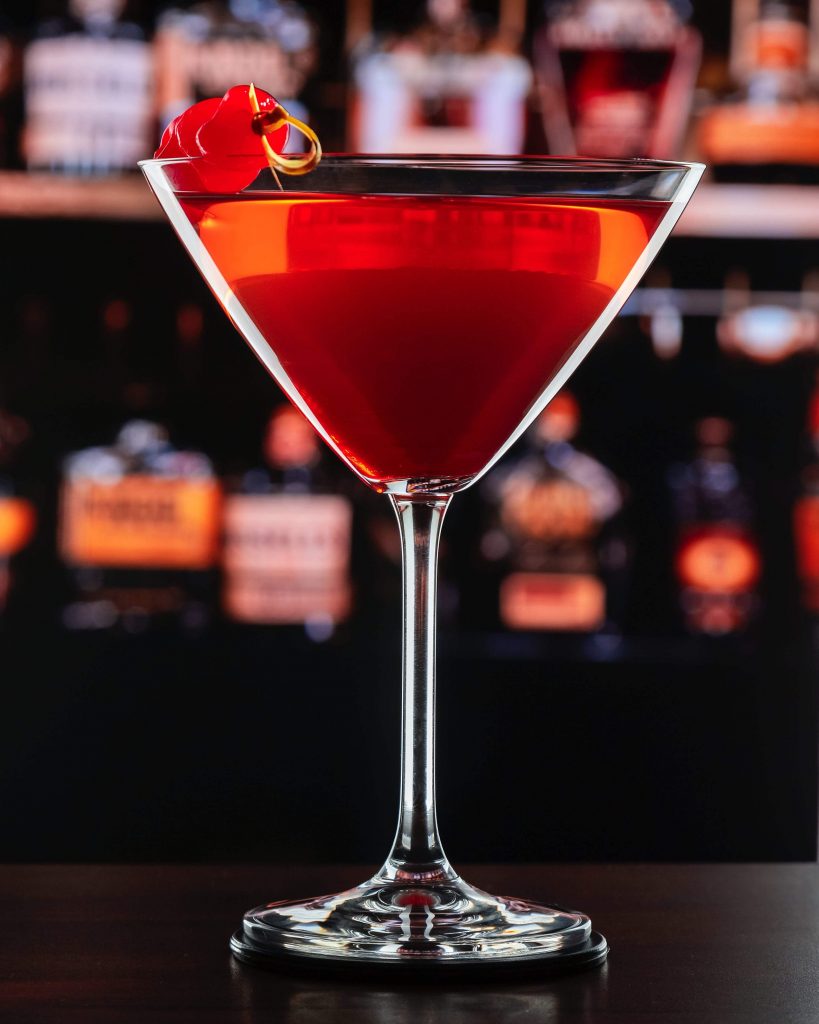
White Grape Juice (non-alcoholic)
Using white grape juice as a substitute for Lillet Blanc is a great choice if you’re looking for a non-alcoholic option or if you want to avoid the complexity of other alcoholic alternatives.
Why not try these cocktails?
- White Grape Spritz: Combine white grape juice with soda water and a squeeze of fresh lemon or lime juice. Serve it over ice for a refreshing, non-alcoholic spritz.
- Lillet Blanc Mocktail: Create a Lillet Blanc-inspired mocktail by mixing white grape juice with a touch of lemon juice. You can also add a few dashes of orange bitters for complexity. Garnish with a citrus twist or a slice of fruit.
Other suggestions:
- White grape juice can be used in recipes that call for Lillet Blanc in cooking or baking as it adds a touch of sweetness and a also fruity undertone.
- Use white grape juice in dessert recipes like fruit salads, sorbets, and fruit-based sauces for a burst of grape flavor.
- For non-alcoholic sangrias or fruit punches, white grape juice is an ideal base. Combine it with fresh fruit slices, citrus juice, and soda water for a refreshing and family-friendly beverage.
Remember that white grape juice is naturally sweet so you will need to adjust the amount used to balance out the sweeteness levels. You may even need to balance it with some citrus juice to achieve the desired flavor. Using white grape juice as a substitute allows you to maintain the fruity and sweet characteristics of Lillet Blanc without the alcohol content.
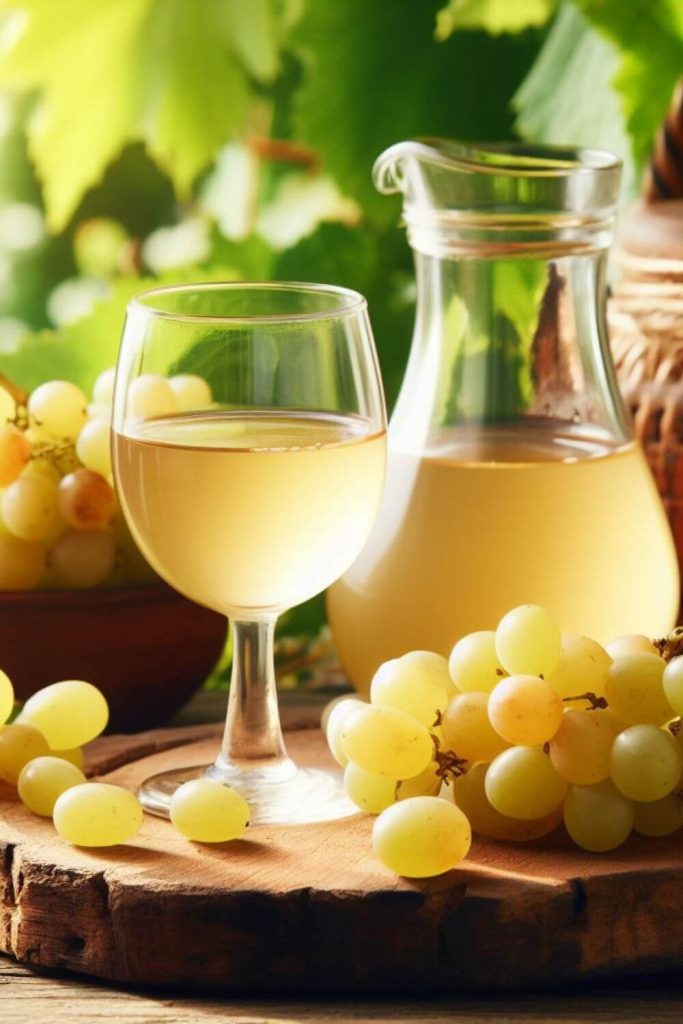
Herbal Infusions (non-alcoholic)
Using herbal infusions as a substitute for Lillet Blanc can bring a unique twist to your cocktails and recipes.
- Choose herbs that complement the flavor profile of your recipe. Common options include chamomile, lemongrass, mint, thyme, or lavender. You can also get creative with your herbal combinations.
- You can even create your own herbal infusion by steeping your selected herbs in hot water, much like making herbal tea. The key is to achieve a concentrated herbal flavor, so steep the herbs for a longer duration, typically 15-30 minutes.
- After steeping, let the herbal infusion cool to room temperature. You can speed up this process by placing it in the refrigerator.
Try using in cocktails and mocktails
- In cocktails that originally call for Lillet Blanc, you can use your herbal infusion as a substitute. The herbal notes will add depth and complexity to your drinks.
- For example, a chamomile infusion can work well in recipes with floral and light herbal notes, while lemongrass can add a bright and zesty twist.
- Your herbal infusions can be utilized in non-alcoholic drinks too. Create herbal-infused water or sparkling water for refreshing mocktails. Add a touch of sweetener or citrus juice as needed.
If using in cooking and baking:
- Herbal infusions can also be used in cooking and baking. They can be incorporated into sauces, glazes, or also marinades to infuse your dishes with herbal flavors.
Using herbal infusions as a substitute for Lillet Blanc provides an opportunity to introduce a wide range of unique flavors to your recipes. It can add depth and complexity that goes beyond the original ingredient.
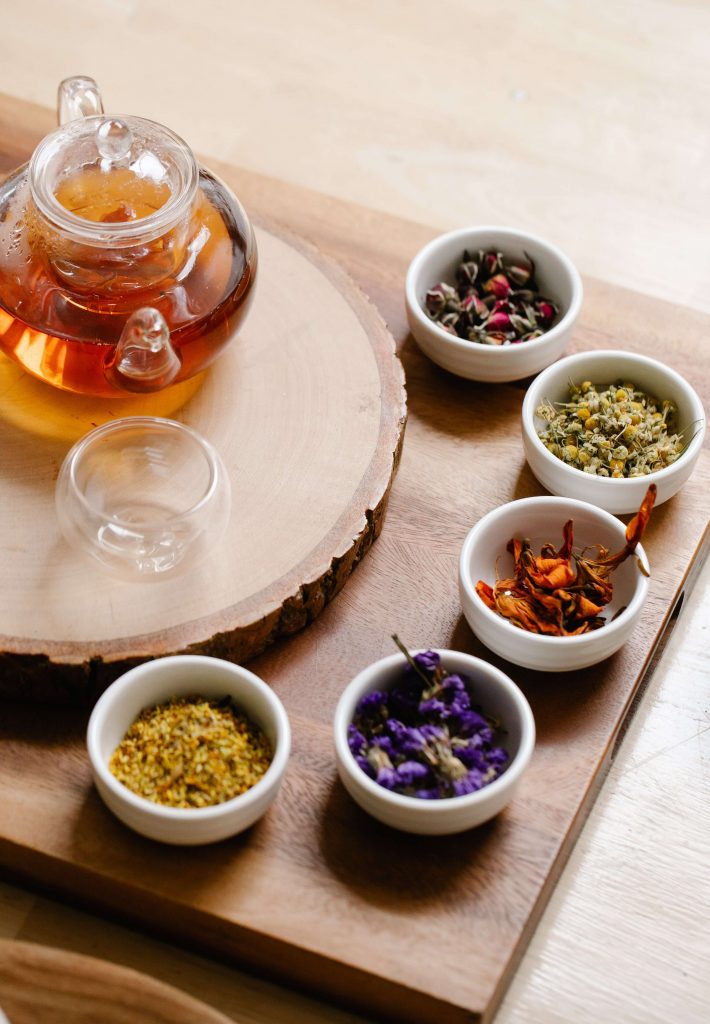
Non-Alcoholic Aperitif Alternatives
Using non-alcoholic aperitif alternatives as a substitute for Lillet Blanc can be a fantastic choice, especially if you want to maintain the aperitif experience without alcohol.
Select Non-Alcoholic Aperitifs:
- Look for non-alcoholic aperitif brands on the market, such as “Lyre’s” or “Stryyk,” which aim to replicate the experience of aperitif wines without the alcohol content. These products are designed to closely mimic the flavors and complexity of traditional aperitifs.
In Cocktails:
- Non-alcoholic aperitif alternatives can be used in cocktails just like Lillet Blanc. In recipes that originally call for Lillet Blanc, use the non-alcoholic version as a 1:1 substitute.
- For example, you can create a non-alcoholic version of a Vesper Martini or a Lillet Blanc-based cocktail, replacing the Lillet Blanc with the non-alcoholic aperitif alternative.
- Serve your non-alcoholic aperitif alternatives over ice or in chilled glasses with a citrus twist to enhance the aperitif experience.
Mocktails:
- Get creative with non-alcoholic aperitif alternatives by crafting unique mocktails. Combine them with non-alcoholic spirits, fresh juices, soda water, and also bitters to create a wide range of alcohol-free aperitif-style drinks.
- Taste your recipes as you go and make adjustments to the level of sweetness, acidity, and other flavor elements to ensure they match your preferences.
Pairing with Food:
- Consider pairing your non-alcoholic aperitif alternatives with appetizers and snacks just as you would with traditional aperitifs. They can complement a variety of dishes.
Using non-alcoholic aperitif alternatives allows you to create the aperitif experience without the alcohol, making it suitable for a broader audience.
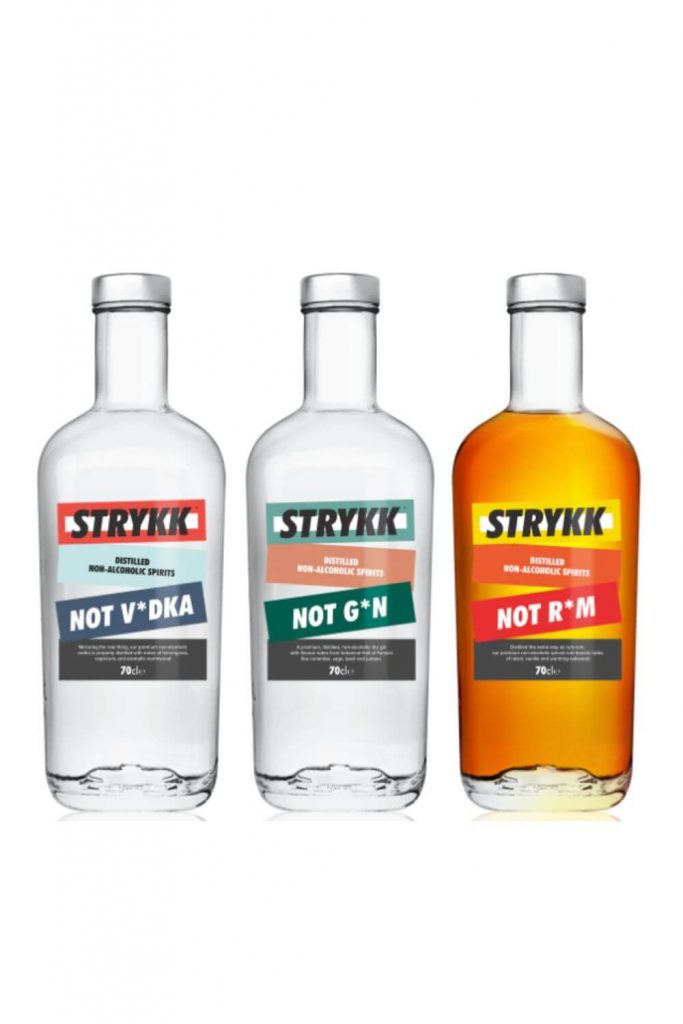
Soda Water or Tonic Water (non-alcoholic)
Using soda water or tonic water as a substitute for Lillet Blanc can be a refreshing and straightforward choice, particularly when you want a non-alcoholic alternative.
In Cocktails:
- Soda Water: Replace Lillet Blanc with soda water in cocktails to maintain a refreshing and effervescent quality. Soda water works well in drinks that benefit from a lighter and bubbly character.
- Tonic Water: Tonic water can be a great substitute in cocktails that need a slightly bitter and herbal element. It pairs especially well with gin, creating a familiar profile in drinks like a Gin and Tonic.
- Serve your cocktails over ice to keep them cool. And why not add a slice of citrus (e.g., lemon or lime) to enhance the overall flavor.
Mocktails:
- Create mocktails by mixing soda water or tonic water with non-alcoholic flavorings. You can add a splash of citrus juice, a few dashes of bitters, and also some herbal infusions for complexity.
Non-Alcoholic Aperitif-Style Drinks:
- Experiment with non-alcoholic aperitif-style drinks by combining soda water or tonic water with non-alcoholic aperitif alternatives, citrus twists, and garnishes. This can provide a well-rounded aperitif experience without alcohol.
Pairing with Food:
- Offer soda water or tonic water as a palate-cleansing option to complement a variety of appetizers and snacks before a meal.
Balance Sweetness:
- Adjust the sweetness level in your cocktails or mocktails to taste. You may need to add a sweetening element like simple syrup or a non-alcoholic sweetener if your recipe originally relies on Lillet Blanc for sweetness.
Using soda water or tonic water as a substitute for Lillet Blanc is a versatile and alcohol-free option. It provides a clean and crisp backdrop for your drinks, allowing you to experiment with various flavorings and combinations.
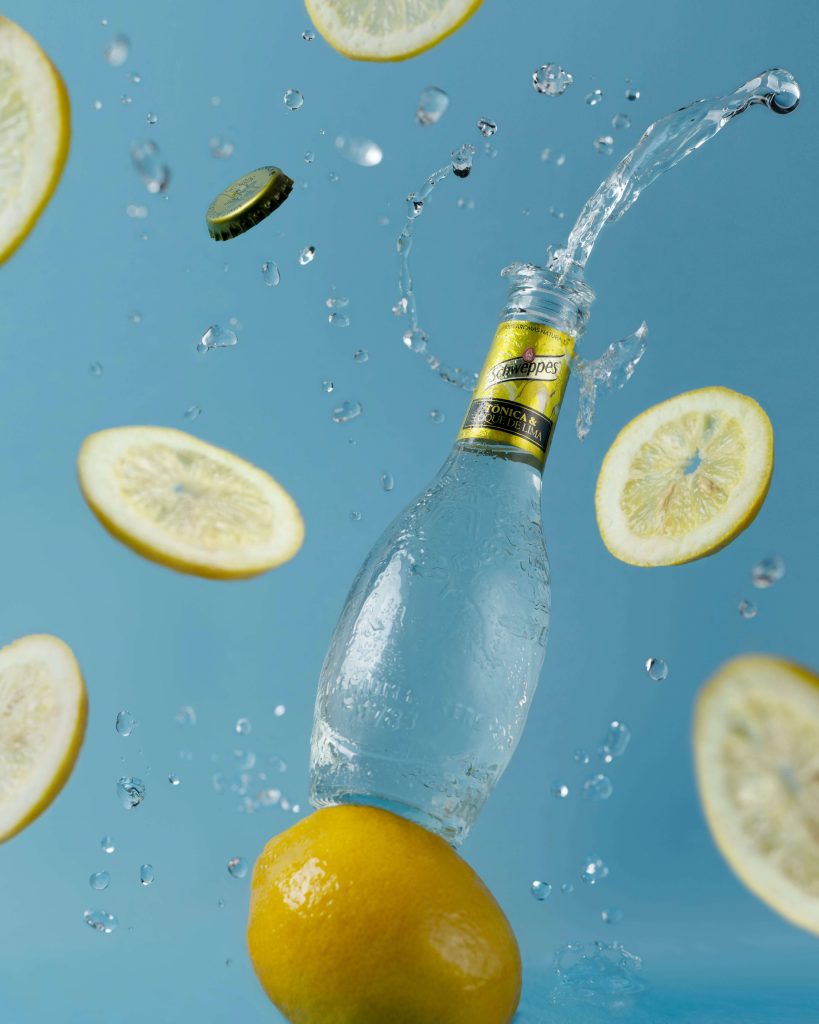
Summary for Lillet Blanc substitutes
Okay – that’s you all sorted with suitable substitutes for Lillet Blanc.
Here’s a quick summary of using various substitutes for Lillet Blanc:
- White Vermouth: White vermouth, such as Noilly Prat or Dolin Blanc, is a close match for Lillet Blanc. It’s dry and fortified, with herbal and slightly sweet notes. This makes it an excellent option for cocktails and recipes that call for Lillet Blanc.
- Cocchi Americano: Cocchi Americano or Cocchi Americano Bianco is another fortified wine that offers a bittersweet taste with botanical notes. It can be used as a substitute in cocktails, providing a unique character to your drinks.
- St-Germain: St-Germain is an elderflower liqueur that introduces floral and sweet notes as a Lillet Blanc substitute. It can work well in cocktails with a floral or fruity focus. You may need to adjust the sweetness level in your recipes.
- Salers Aperitif: Salers Aperitif is a gentian-based aperitif with a bitter and herbal profile. While not an exact match, it can add complexity to cocktails, providing a different flavor dimension.
- Angostura Orange Bitters: Angostura Orange Bitters can offer citrus and aromatic notes as a substitute for Lillet Blanc in cocktails. It’s particularly suitable for drinks that benefit from a burst of orange flavor and aromatic complexity.
- Amaro Averna: Amaro Averna is a complex and bittersweet herbal liqueur. While quite distinct from Lillet Blanc, it can be used creatively in cocktails, sangrias, and desserts.
- White Grape Juice: White grape juice can mimic the sweetness and fruity notes of Lillet Blanc. You can use it as a base in cocktails and recipes that call for Lillet Blanc.
- Herbal Infusions: Experiment with herbal infusions, such as chamomile or lemongrass tea, to introduce herbal complexity and aroma to your beverages and dishes.
- Non-Alcoholic Aperitif Alternatives: There are non-alcoholic aperitif brands on the market that aim to replicate the experience of aperitif wines without the alcohol. These can be used as direct substitutes in cocktails or also as aperitif-style drinks.
- Soda Water or Tonic Water: For a simple and refreshing non-alcoholic twist, consider using soda water or tonic water. They can provide effervescence and a pleasant contrast to the flavors in your recipes.
We have gathered together a lot more facts on ingredients such as herbs, spices, oils, nuts, etc. if you would like to learn some more.
Or if you need to swap out another ingredient have a look at our Substitutes section.

